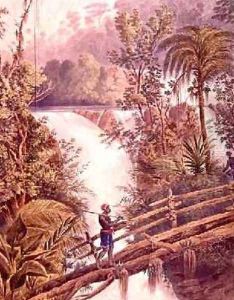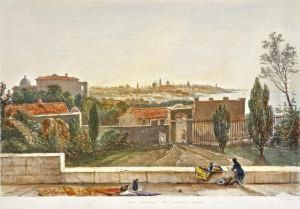William Gore Ouseley Paintings
William Gore Ouseley was a British orientalist and diplomat, not primarily known as a visual artist but rather for his significant contributions to the study of Persian culture and language. Born on March 24, 1771, in Monmouthshire, England, he became a prominent figure in the field of Oriental studies.
Ouseley's interest in the Middle East and its cultures was sparked at a young age, and he was particularly fascinated by the Persian language and literature. His diplomatic career began when he followed his brother, Sir Gore Ouseley, who was an ambassador to Persia, on a mission to Iran in 1810. During his time there, William served as his brother's secretary, but his passion for the local culture led him to spend much of his time engaging with scholars and collecting manuscripts.
Apart from his diplomatic endeavors, Ouseley dedicated himself to scholarly work, which led to several publications on Persian culture. His writings contributed significantly to Western knowledge of Persian history, poetry, and art. Among his notable works are 'The Oriental Collections,' which compiled various essays on Eastern literature and cultures, and 'Travels in Various Countries of the East, More Particularly Persia,' which documented his observations and experiences during his travels.
After his return to Britain, Ouseley continued his academic pursuits and became a member of various learned societies, including the Royal Asiatic Society. His extensive collection of Persian manuscripts eventually formed an important part of the Oriental manuscripts at the Bodleian Library, Oxford.
William Gore Ouseley's death on May 18, 1844, marked the end of a life dedicated to the exploration and understanding of Persian culture. Although not an artist in the traditional sense, his work provided valuable insights into Persian art and literature, contributing to the broader appreciation and study of the region's rich cultural heritage.

